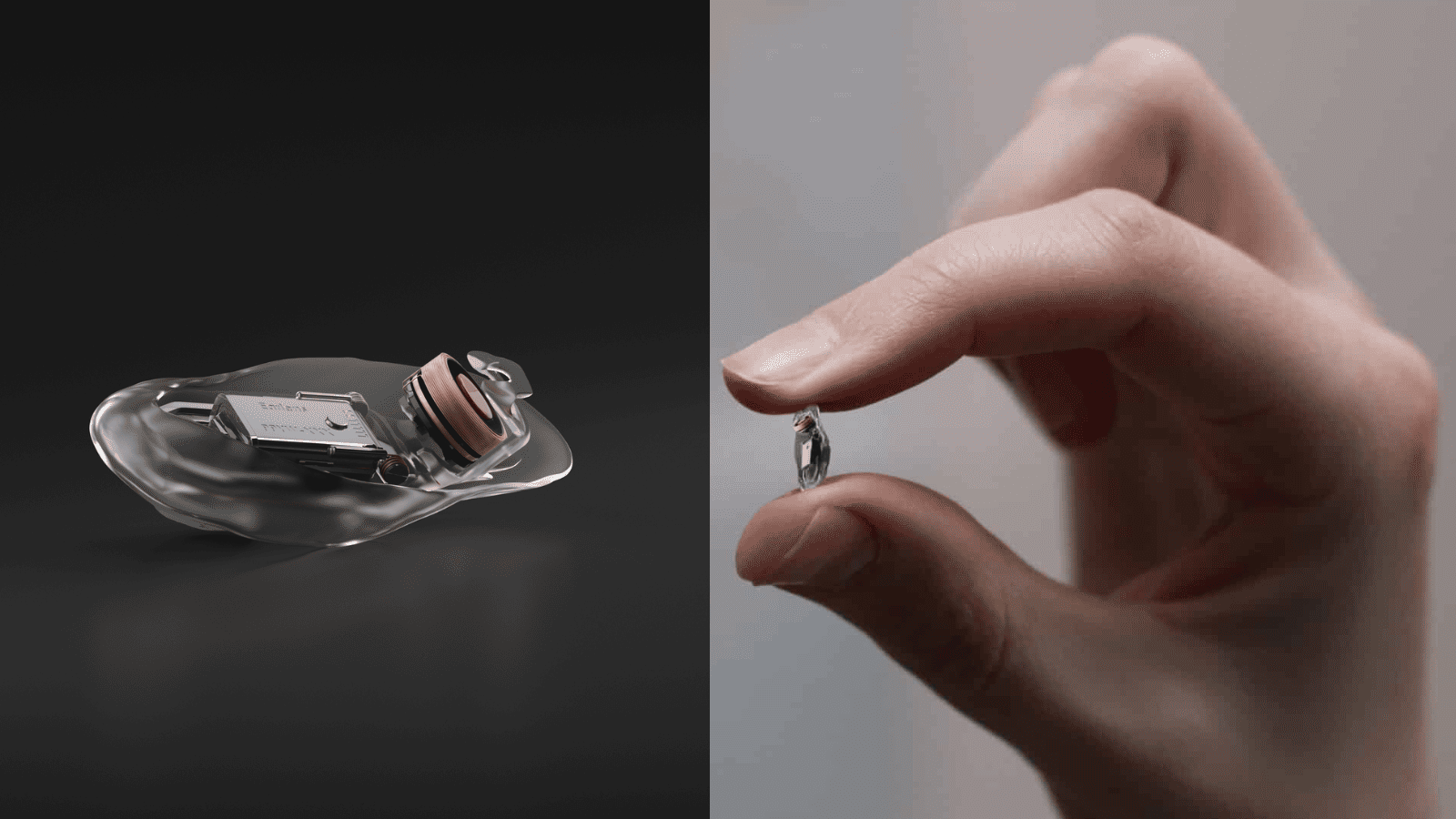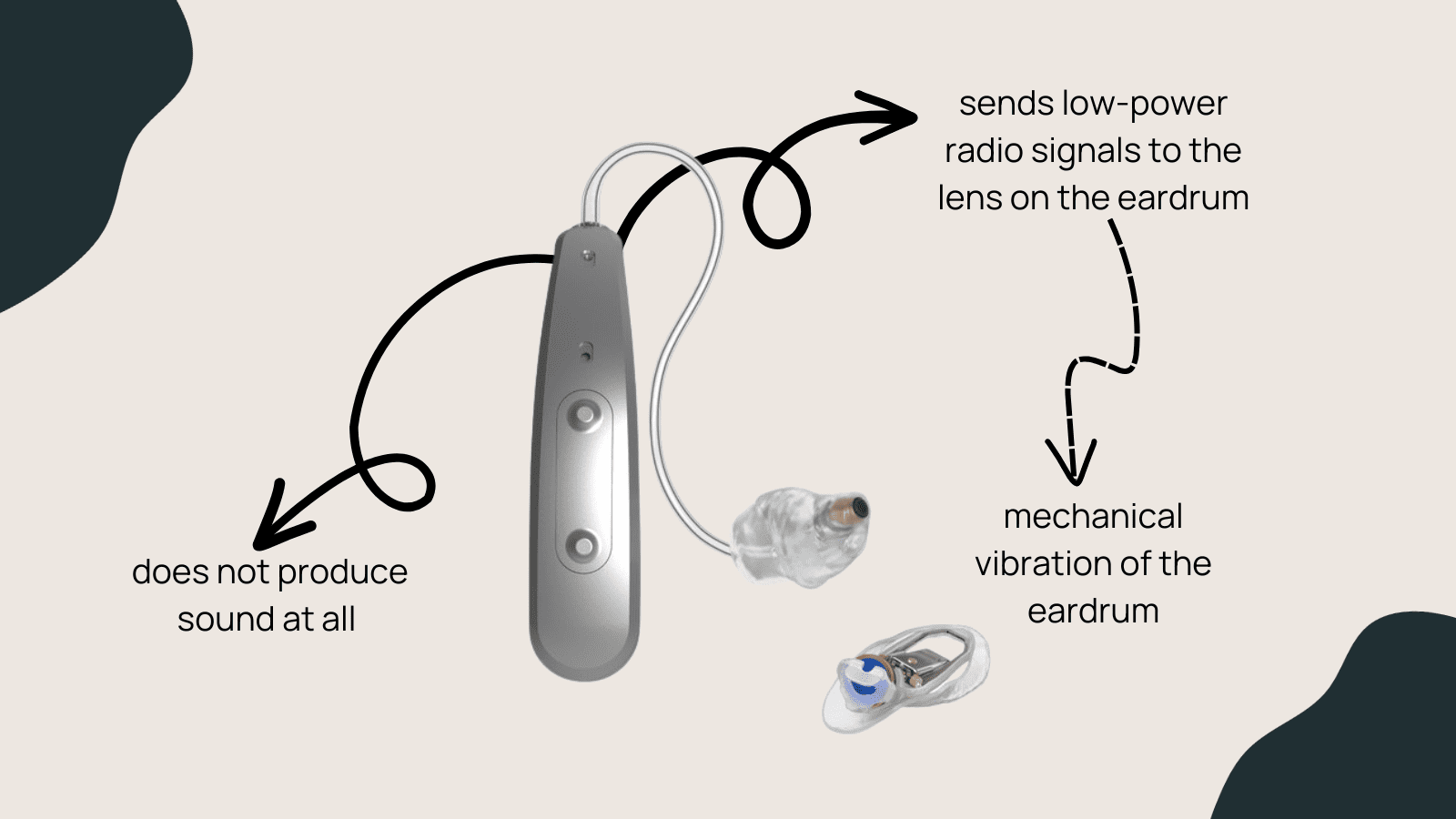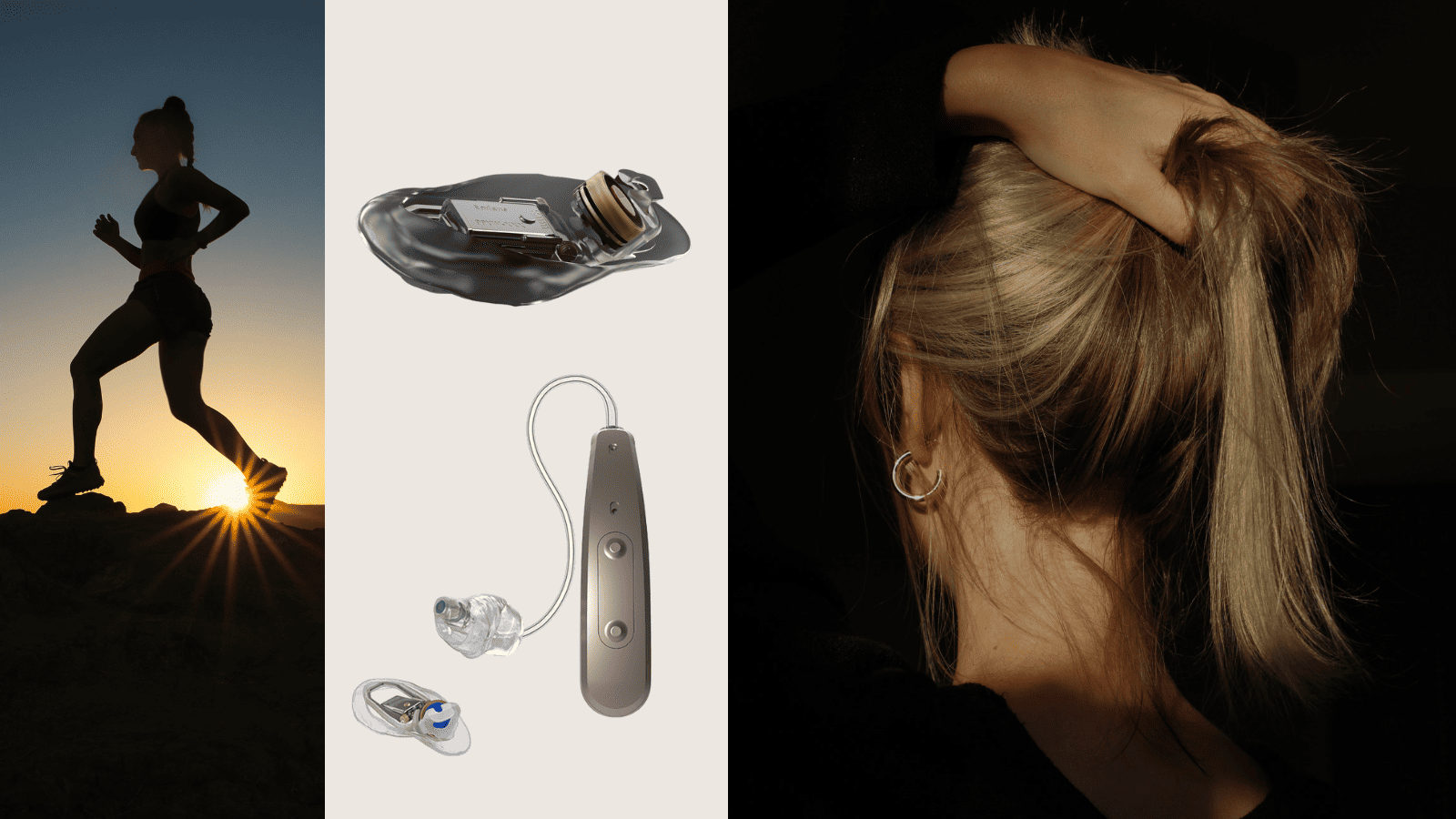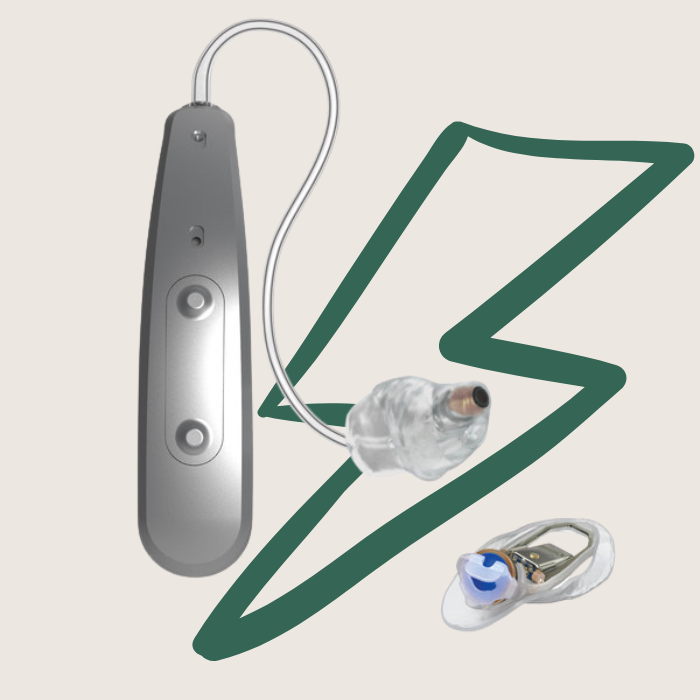Earlens is a hearing aid company that has grown in recent years. The brand has a new type of hearing aid that utilizes unique technology to deliver a high-fidelity sound experience. In this article, we'll look at what Earlens is, how it works, and what customers say about the product.
Read on to learn more about the hearing aid device and if it’s right for you.
About Earlens

In 2005, Dr. Rodney Perkins founded Earlens. As an otologist (aka, an ear doctor) and inventor, he used his medical expertise to create an innovative product that works differently than most hearing aids. Since Earlens began, the company has developed over 180 patents on its technology.
Earlens aims to create a natural, high-fidelity sound quality experience, and it shows because in 2020 they were listed as one of Time Magazine's Top 100 Inventions. This technology can deliver a higher bandwidth of sound than traditional hearing aids, which roll off in the high frequencies. More so, Earlens works differently than conventional hearing aids due to its inductive drive method of stimulating the eardrum directly. That being said, this is currently the only product like this on the market.
How Earlens Technology Works

So, how exactly does the Earlens work? It operates as a system that utilizes two parts: A piece worn like a regular hearing aid and the tympanic "lens" placed directly on the umbo of the eardrum by an ENT. However, unlike a traditional hearing aid, this device does not produce sound at all. Instead, the hearing aid works as a small sound processing unit that sends low-power radio signals to the lens on the eardrum, resulting in mechanical vibration of the eardrum.
Earlens' first iteration made use of a small infrared laser light system for communicating with the lens (and was patented in 2015 by the FDA). Unfortunately, the light system encountered problems with the sound transmission when not lined up just right to pick up the signal. And due to the issues with intermittency, the second generation of Earlens technology was created with a different methodology and patented in 2019. This technology employs radio frequency rather than light to communicate with the lens, which is much more reliable.
And, what does that all mean for hearing aid tech? The results are rather exciting. With this technology, the Earlens can create a more natural and clearer sound than traditional hearing aids. Although, it does come with a rather significant price tag (more on that below).
How the Earlens Process Works

First, you'll begin with a comprehensive hearing test, as it’s an important starting point because there is a specific Earlens criteria for candidacy. Next, an ENT will also evaluate your ear canal geometry and examine your eardrum anatomy to determine whether placing a lens on your eardrum is possible.
Then, it’s time for a hearing aid evaluation with an audiologist who works with Earlens. During this appointment, you'll learn more about the process and have the chance to experience the Earlens sound quality versus traditional hearing aids. Earlens has a 'comparator' that allows you to hear music or other audio in a high fidelity simulation, as it would sound with Earlens and then through a traditional hearing aid for comparison. The first time I experienced this simulation, I was surprised at the difference—it sounded like listening through a high-quality stereo system with natural and crisp sound.
If you decide to proceed, the next step is to have ear impressions taken. However, these are different from the typical ear impression you may have had before at an audiologist's office. This impression extends all the way down the ear canal to the eardrum. From this impression, your custom tympanic lens and ear tip are created.
After the newly created lens arrives, you'll return to have it placed on the eardrum by the ENT. Then, the audiologist will program the device for you.
What about a trial period?
Like many other hearing aids on the market, there is a trial period when you purchase Earlens. However, you won’t be able to return the entire system for a full refund. This is because with the additional procedures involved in making the tympanic lens, and the clinic will not refund this cost. That being said, some companies offer a credit towards the price of traditional hearing aids if you decide to return the Earlens.
Who Is a Candidate for Earlens
The following are the general criteria for Earlens candidacy:
- Mild to severe hearing loss
- Normal ear canal and eardrum anatomy
- Dissatisfied with traditional hearing aids
- Not prone to excessive wax build-up
- Able to attend follow-up appointments and follow instructions
Who Is Not a Candidate for Earlens
If you have any of the following conditions, Earlens will not be the right option for you:
- History of chronic middle ear infections
- Active perforation of the eardrum or PE tube placement
- Flat severe hearing loss
- Poor speech discrimination (<50%)
- Conductive hearing loss
Pros and Cons
Pros
Earlens is a unique hearing solution that can offer high-fidelity sound quality. As this device is also silent and does not produce sound, there is little concern with feedback or whistling in the ear.
The Earlens charger is simple and easy to use and fully charges quickly—within four hours. And if you’re an iPhone user, there is an easy-to-use app as well.
Cons
- Requires appropriate maintenance of the ear with special oil
- More frequent follow-up visits
- Some may find Earlens to be cosmetically unappealing for the price tag
Despite all of the attractive features of this device, there are a few drawbacks. Most patients tolerate the lens just fine, some may find it uncomfortable or feel an odd sensation in the ears. Maintenance and use is another aspect— as it is very crucial that Earlens requires following directions to keep the device working properly. An ENT and audiologist will recommend how often you'll need to apply oil to your ear canal to maintain hydrostatic tension (it keeps the lens in place), and create a buffer area for epithelial migration. It takes a little work to keep it running like a well-oiled machine (pun intended!).
You'll need to see your ENT and audiology team at regular intervals, which are more frequent than a traditional hearing aid user. For example, Earlens patients will typically return for follow-up visits every three to four months, while a traditional hearing aid wearer may visit only once every six months.
And there’s the matter of aesthetics. Some patients believe that for this price tag, they would simply prefer a less visible hearing aid. If this is you, you'd probably prefer the Phonak Lyric device. However, if you're less cosmetically motivated and more interested in excellent sound quality, Earlens can still be a great solution.
Is Earlens worth it?
If you have long been dissatisfied with traditional hearing aids and are looking for the highest quality listening experience and have the budget, then Earlens is worth it. I had patients who were even borderline candidates exceeding expectations regarding their performance. Earlens can make all the difference when trying to understand conversation in noisy environments for some patients. Patients have also been excited about the sound quality when listening to music with Earlens.
But, if you're on a budget, there are other options out there that may be more suitable for you. Especially if you've never tried traditional hearing aids before, I will encourage you to try premium hearing aid technology before considering Earlens. It is a significant investment, and you could always return your hearing aids within their trial period if you find that they don't provide the experience you are looking for.
Final Thoughts
Earlens is an excellent choice for anyone looking for the best possible hearing aid available. The company offers financing options, and most insurance plans will cover at least part of the cost, making them more affordable than you might think. If you can afford it and are willing to take the additional steps involved, we highly recommend giving Earlens a try.
Frequently asked questions
Currently, Earlens is only available in the United States.
Like many other hearing aids on the market, there is a trial period when you purchase Earlens. However, you won’t be able to return the entire system for a full refund. This is because with the additional procedures involved in making the tympanic lens, and the clinic will not refund this cost. That being said, some companies offer a credit towards the price of traditional hearing aids if you decide to return the Earlens.
Currently, Earlens is only compatible with Apple iPhone for streaming or app connectivity. As this technology comes with a high price tag, it's important to consider this in advance. If connectivity is important to you and you have an Android phone, you'll want to keep this in mind.
Earlens is only available in a rechargeable option at this time.






